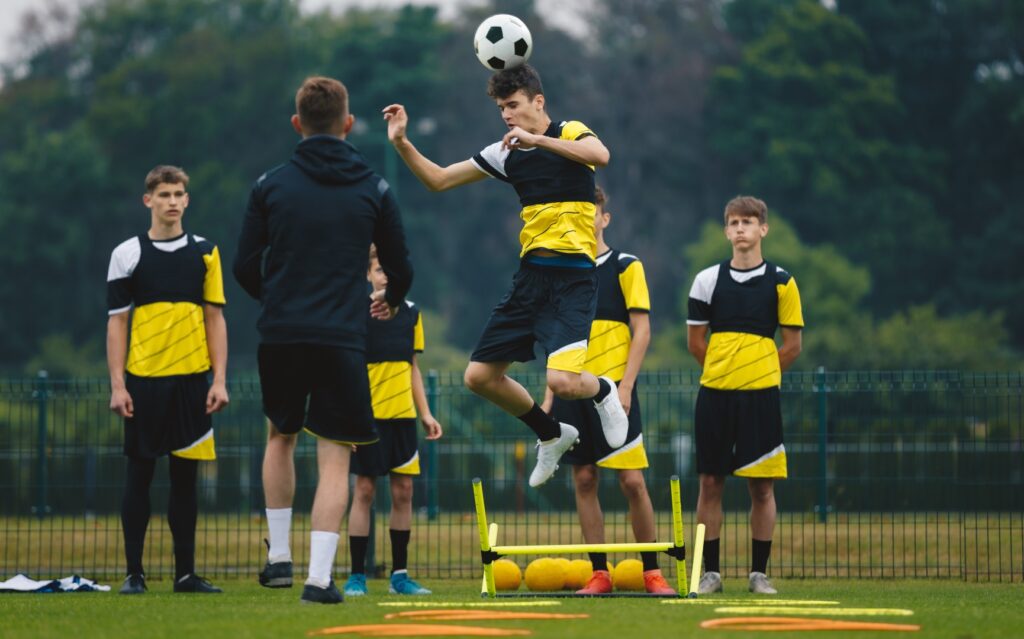Offseason training is an important aspect of becoming a successful football player. It is during this time that players can focus on building strength, endurance, and overall athleticism to improve their performance on the field. In this blog, we will explore the key elements of an effective off-season training program, including strength and conditioning, nutrition, and mental preparation.

Strength and Conditioning
One of the most important aspects of off-season training for football players is strength and conditioning. This includes weightlifting, plyometrics, and agility drills. A good strength and conditioning program should be tailored to the individual needs of the player, with an emphasis on building explosive power, speed, and endurance.
Weightlifting is a crucial component of strength training for football players. It is important to focus on compound lifts such as squats, deadlifts, bench presses, and overhead presses. These exercises target multiple muscle groups and are essential for building overall strength and power.
Plyometric exercises, such as box jumps, explosive push-ups, and jump squats, are also important for building explosive power and increasing speed. These exercises focus on rapid muscle contractions and are designed to improve quickness and agility.
Agility drills, such as ladder drills and cone drills, are also important for football players. These exercises focus on footwork and body control, which are essential skills for any football player.
Nutrition
In addition to strength and conditioning, proper nutrition is also crucial for offseason training. A balanced diet that includes lean protein, complex carbohydrates, and healthy fats is essential for building muscle, improving endurance, and promoting recovery.
Protein is important for muscle growth and repair, and should make up a significant portion of a football player’s diet. Good sources of protein include lean meats, eggs, and dairy products.
Carbohydrates are also important for providing energy during workouts and promoting recovery. Complex carbohydrates, such as whole grains, fruits, and vegetables, are the best sources of carbs for athletes.
Healthy fats, such as those found in nuts, seeds, and fatty fish, are important for overall health and can also provide a source of energy during workouts.
Mental Preparation
In addition to physical training and proper nutrition, mental preparation is also important for football players during the offseason. This includes goal setting, visualization, and mental toughness training.
Goal setting is an important aspect of offseason training. Players should set realistic, measurable goals for themselves and work towards achieving them. This can include goals for strength, speed, and endurance, as well as specific skills that the player wants to improve upon.

Visualization is another important tool for mental preparation. Players should visualize themselves performing at their best on the field, imagining every detail of their performance, from their footwork to their mindset.
Mental toughness training is also important for football players. This includes developing resilience and learning to handle pressure and adversity. Mental toughness training can include visualization exercises, meditation, and positive self-talk. In conclusion, offseason training is essential for football players who want to improve their performance on the field. A comprehensive training program should include strength and conditioning, proper nutrition, and mental preparation. With hard work and dedication, football players can train like pros during the offseason and become better athletes on the field.

